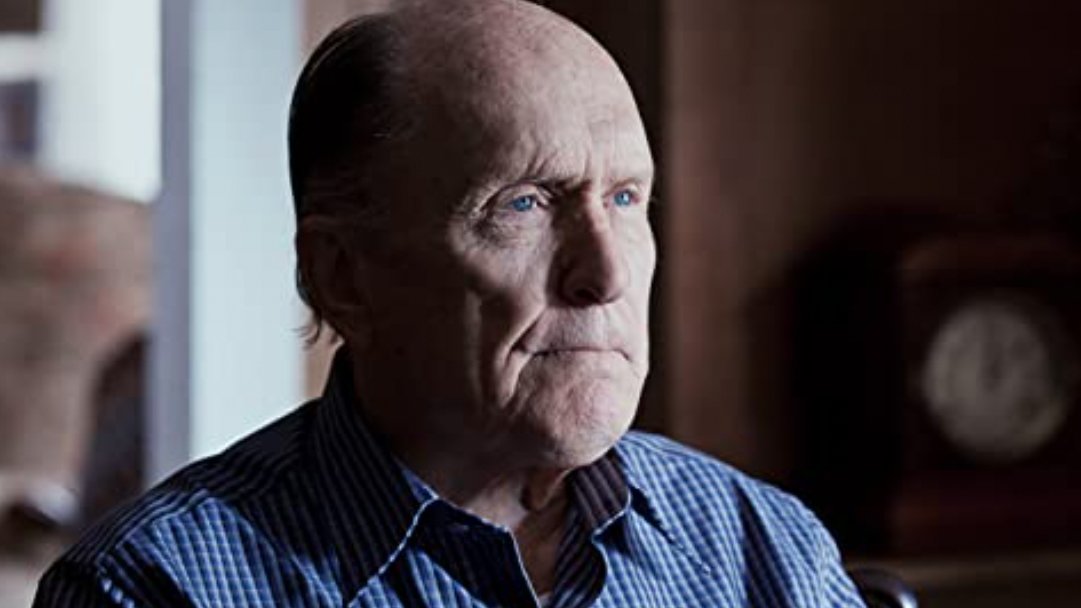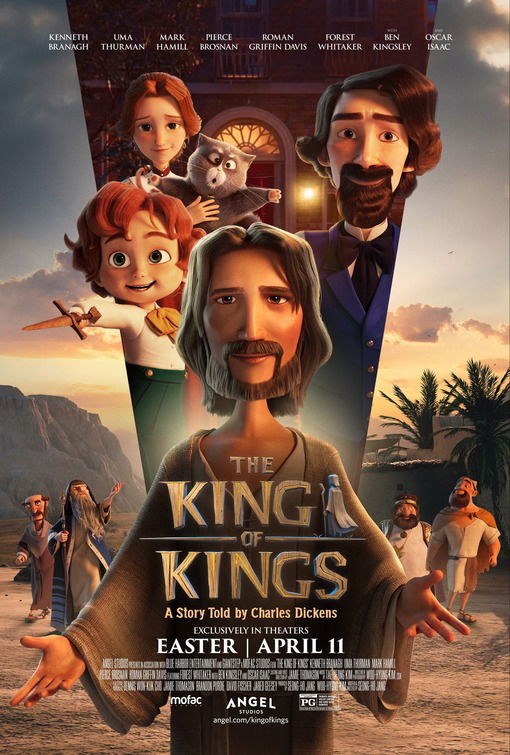
How THE APOSTLE Changed Robert Duvall’s Perspective on Faith
By Movieguide® Staff
Note: This story is part of our Faith in Hollywood series. For similar stories, click here.
Veteran actor Robert Duvall, known for roles in classics like TO KILL A MOCKINGBIRD and THE GODFATHER, said that church and faith inspired him to work hard within the entertainment industry.
“I’ve been an actor all my working life, and learning a part has always meant more than just memorizing my lines,” Duvall wrote in 1998. “I immerse myself in the character I am to play. I find out everything I can about who he is, the world he comes from, his dreams, his fears, his passion, his humanity. I try to transform myself. A remarkable thing can happen in this process. Many times I discover something new about myself. Sometimes it is a discovery that changes my life.”
While writing, directing, and acting in THE APOSTLE, Duvall recalled how his portrayal of a preacher changed his perspective on religion and faith.
“For years I have wanted to make this film,” the seven-time Academy Awards nominee said at the time. “It’s been a labor of love, and it began in 1962 when I prepared to play a character from the rural South in an off-Broadway play.
“To research the role I traveled to Hughes, Ark. Wandering the streets of the sleepy Delta town, hanging out in the coffee shop and the post office, I hoped to learn something about my character from the way a man tipped his hat or drawled the directions to the local hotel,” he added. “But what I never expected to find was something that would change how I looked at religion.”
Duvall’s memories of his mother faithfully praying for him and his family during World War II came back to him after attending a church service.
“One Sunday as I strolled down the main drag I noticed people flocking to a simple white clapboard building, the local Pentecostal church. All sorts of folks, young and old, were going inside, where I could hear the clink of tambourines, the rap of a snare drum and organ music rising. Might as well check this out, I thought. I slipped in and sat in back,” Duvall said.
He continued: “I grew up in a churchgoing Navy family. During World War II we lived in Annapolis, Md., while Dad commanded a destroyer escort in the North Atlantic, playing a deadly game of cat and mouse with German U-boats. Occasionally Mom woke up in the middle of the night with the overwhelming urge to pray for him. One morning at the breakfast table she told us of the trouble she had sensed Dad was in. Later we learned he had narrowly escaped being blown sky-high by a German torpedo during the night.”
While he understood and experienced the inner workings of a faith-filled life as a child, Duvall said that what stuck with him from this particular church service was the outward expression of faith.
“I knew about the inner life of the Spirit, but I had never seen such an extraordinary outward expression of faith as I witnessed in that Pentecostal church. I had never seen church like that. People could barely contain the joy of their faith. Their faces were alive with it, imbued. Folks were on their feet, singing praise and clapping, shouting to God! The air crackled with the Spirit,” he recalled. “It was nearly impossible to be a mere observer. I wanted to sing and shout with them. I couldn’t explain it, but I knew the people in that church had a gift, a story to share. Somehow, someday, I would tell that story.”
However, after years of intense research, Duvall’s movie about a pentecostal preacher was canceled.
“I wondered what I would do with all I had learned,” Duvall said.
Even after winning the Oscar for his role in TENDER MERCIES, Duvall was unable to get the project off the ground and running. After winning the Oscar in 1983, he returned to his home in Virginia to take care of his mother.
“One day I sat at the desk in my father’s wood-paneled den. Studying the walls, I was struck by his innate modesty. A rear admiral in the Navy, he had no plaques or medals displayed, none of his citations or awards for bravery. Everyone knew he was a hero. His career had spoken for itself. He believed in his country,” Duvall said. “I sat and wondered what I would be remembered for. Looking around my father’s study and suddenly sensing the unyielding passage of time, I felt I needed to do something that had real meaning for me, before it was too late. Something I believed in.”
He continued: “I took out a legal pad and began writing a story, the one I had wanted to write for many years. A story of a preacher… What was most important to me was to make a movie where Christianity was treated on its terms, with the respect it deserves. Hollywood usually shows preachers as hucksters and hypocrites, and I was sick and tired of that.
“I wanted to show the joy and vitality I had seen with my own eyes and felt in my heart and in my life, the sheer, extraordinary excitement of faith. I especially wanted to capture the rich flavor, the infectious cadences and rhythm of good, down-home, no-holds-barred preaching.”
With Duvall’s newfound inspiration, he quickly wrote the story. However, Hollywood did not believe that a movie about religion was what people wanted to watch.
“I took my script to Hollywood producers, and was met with the same response: ‘Bob, religion is not a subject our audiences want to watch.’ I disagreed. Why wouldn’t audiences want to watch a movie about something that is foremost in so many people’s lives?” he asked.
“I wasn’t getting anywhere with Hollywood, yet my work on the movie filled my soul. One Sunday in New York, I visited six churches, ending up at Harlem’s vast Abyssinian Baptist Church,” he continued. “There is a packed congregation before a huge choir, when we all began to sing ‘What a Friend We Have in Jesus,’ I found myself connected to the Lord in a way I had never felt before, deep within me.
“Yes, I thought, we’re all kin through Jesus. Not just what we read about him in the Bible, but who he is. That was the secret to powerful faith, the power I wanted to convey in my movie.”
After some time, Duvall used his own money to film THE APOSTLE in a span of seven weeks in Louisiana.
“The things I worried about never came to pass. Generators didn’t break down, the weather was good, people showed up on time, no one got sick. I’m proud of the film. Many of the parts are played by real people and real preachers, not professional actors, because true faith is something that’s hard to duplicate.,” Duvall said. “I think some viewers might be shocked—pleasantly so, I hope—to hear Jesus’ name mentioned so often, or startled by the unironic tone of the church scenes and worship services. They might be surprised to see blacks and whites worshiping together as equals even in the deepest rural South.”
He concluded: “Mostly, I hope they will be moved—moved the way I was when I happened upon that small church in Hughes, Ark., and with no warning something awakened within me that had always been there, dormant and untouched until that day. It was the greatest discovery I ever made.”
A portion of Movieguide®’s review of THE APOSTLE reads:
THE APOSTLE is an affirmative portrait of Christians and evangelism. Robert Duvall is the lead actor, director, producer, and writer for this movie about a preacher coming to terms with his own sins. When Pentecostal preacher Sonny Dewey’s wife, Jessie, leaves him for a young preacher, named Horace, Sonny loses control and hits Horace with a baseball bat. Sonny runs to a small town in Louisiana where he starts a new church and dubs himself “The Apostle.” Even so, Sonny knows the law will catch up with him. Ever faithful to God, Sonny knows that in his frailties he will continue to work for God wherever he is.
THE APOSTLE shakes and shouts the glory of God. Robert Duvall spares very little in portraying the passions and earnestness of God-loving people. The movie contains a positive affirmation of the Christian faith and a strong Christian worldview. There are, however, touches of human weaknesses: Sonny’s arrogance and violence; and, Jessie’s adultery and revenge. These show that man is fallible, and all grace is from God. Duvall’s performance is engaging and moving. THE APOSTLE is one of the few films that portrays Christians as men and women of God and not mockeries of faith.
Duvall won Movieguide®’s Grace Prize® for his role in THE APOSTLE.
“I tried to do the best I could, with my own knowledge of the Bible. I had hoped, and I think it has been in evidence thus far, that the film would reach the secular and the religious community…and it has been a strange type of crossover film, and for that I am very grateful,” Duvall said at the Movieguide® Awards.
Questions or comments? Please write to us here.


 - Content:
- Content: 

